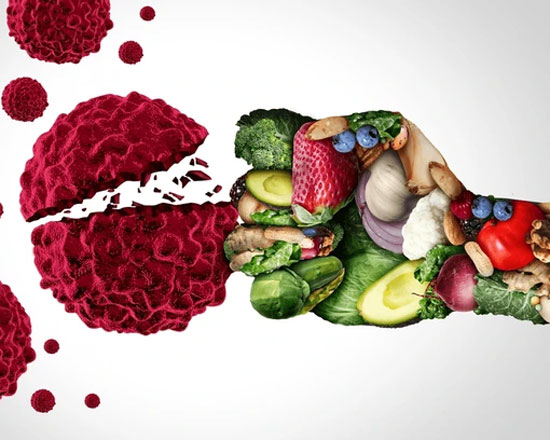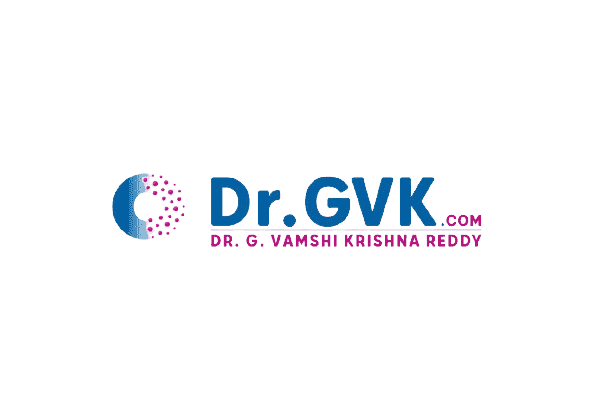Blog Details

Cancer: Foods to Eat & Foods to Avoid
Cancer may have a negative impact on every part of your health, including your appetite and diet. Dr. G. Vamshi Krishna Reddy, M.D., DM (Medical Oncology), a senior consultant medical oncologist at Yashoda Hospitals, Malakpet, discusses why your diet is so crucial during cancer treatment and offers advice on the best foods to eat for cancer patients and cancer foods to avoid.
Because cancer treatment might produce fluctuations in appetite and body weight, it's vital to monitor your diet. While receiving chemotherapy or radiation therapy, a well-balanced diet can help you maintain a healthy weight, assist in managing therapeutic side effects, increase energy and muscular tone, maintain immunological function, and reduce inflammation.
"Anyone with a chronic illness, even if it's not cancer, should eat foods high in protein, healthy fats, whole grains, and vitamins and minerals," Dr. G. Vamshi Krishna Reddy emphasizes. "If feasible, adopt these nutritional modifications before commencing cancer treatment so that you are healthier when you start."
Best Foods to Eat for Cancer Patients
Proteins derived from plants
Plant-based proteins are among the best foods to eat for cancer patients during chemotherapy or other cancer treatments. According to Dr. G. V. K Reddy, they have the greatest quantities of vitamins and minerals. This includes plenty of veggies, as well as beans, legumes, nuts, and seeds. If you must have animal proteins, pick lean ones, such as chicken or fish.
Fats that are good for you
Monounsaturated and polyunsaturated fats are also beneficial for health. Avocados, olive oil, grapeseed oil, and walnuts are abundant in omega-3 fatty acids, which aid in inflammation reduction and cardiovascular health.
Healthy Carbohydrates
When it comes to carbs, choose whole wheat, bran, and oats that have been lightly processed. These include soluble fiber, which aids in the maintenance of healthy gut microbes. Soluble fiber also encourages the formation of short-chain fatty acids, which help with everything from metabolism to cellular repair.
Minerals and vitamins
"Vitamins and minerals help our bodies' enzymatic processes, which play a big role in boosting immune function and reducing inflammation," Dr. G. V. K Reddy explains. Choose vitamin D-fortified foods wherever feasible. Milk, orange juice, yogurt, and several cereals are examples.
If you're not eating as much as usual during treatment or if you're experiencing side symptoms such as vomiting and diarrhea that lead you to lose vitamins and minerals, you might consider taking a multivitamin. Vitamin D insufficiency is the most frequent vitamin deficit, according to Dr. G. V. K Reddy. Vitamin D improves bone health, enhances the immune system, and lowers fatigue. You are more likely to suffer from bone fractures if you use steroids.
Managing Side Effects with Diet
After your treatment begins, several dietary adjustments might help you control side effects. The following are some of the side effects:
- Appetite suppression: Instead of three substantial meals, eat small meals or nutritious snacks throughout the day.
- Constipation: Drink lots of water, consider taking a fiber supplement, and include vegetables and legumes in your meals.
- Diarrhea: Choose sodium-rich meals and beverages (sports drinks or broth) and potassium-rich foods and beverages (bananas and all-natural fruit juices).
- Taste impairment: It might be tough to know what to eat when you can't taste it. Consider experimenting with new spices or marinades. Strong flavors, such as lemon or lime juice, can also be added.
- Nausea: Anti-nausea foods include citrus, ginger, and peppermint oil. You can eat a lemon slice, sip ginger tea, or eat ginger chews.
Cancer Foods to Avoid
Be mindful of what you put into your body while undergoing cancer treatment. Read nutrition labels and cook as much as possible at home. It is preferable to avoid overly refined, processed foods. Cancer foods to stop eating include fried meals high in hydrogenated oils, which can cause inflammation.
Because cancer patients frequently have impaired immune systems, avoid items that may cause foodborne disease, such as:
- Sushi made from lightly cooked or raw seafood.
- Soft-cooked eggs or raw egg-containing items, such as homemade mayonnaise.
- Cheeses and dairy products that have not been pasteurized.
- Fruits and vegetables that have not been washed.
Registered dietitians have received specialized training in the dietary requirements of people suffering from certain disorders. Your dietician can help you design meals that provide the right amount of calories and nutrients.
Dr. G. Vamshi Krishna Reddy emphasizes the importance of developing an eating plan that works for you. If you're pressed for time or energy in the evenings, try to make healthy takeaway choices. If you're on a tight budget, adding cheap, healthy items like beans, frozen fruit, or veggies to basic meals may make a big difference.
World Class Expertise
Dedicated to providing you with the top notch, advanced, comprehensive & compassionate cancer care through innovative & advanced treatments.
Contact
Contact Us
